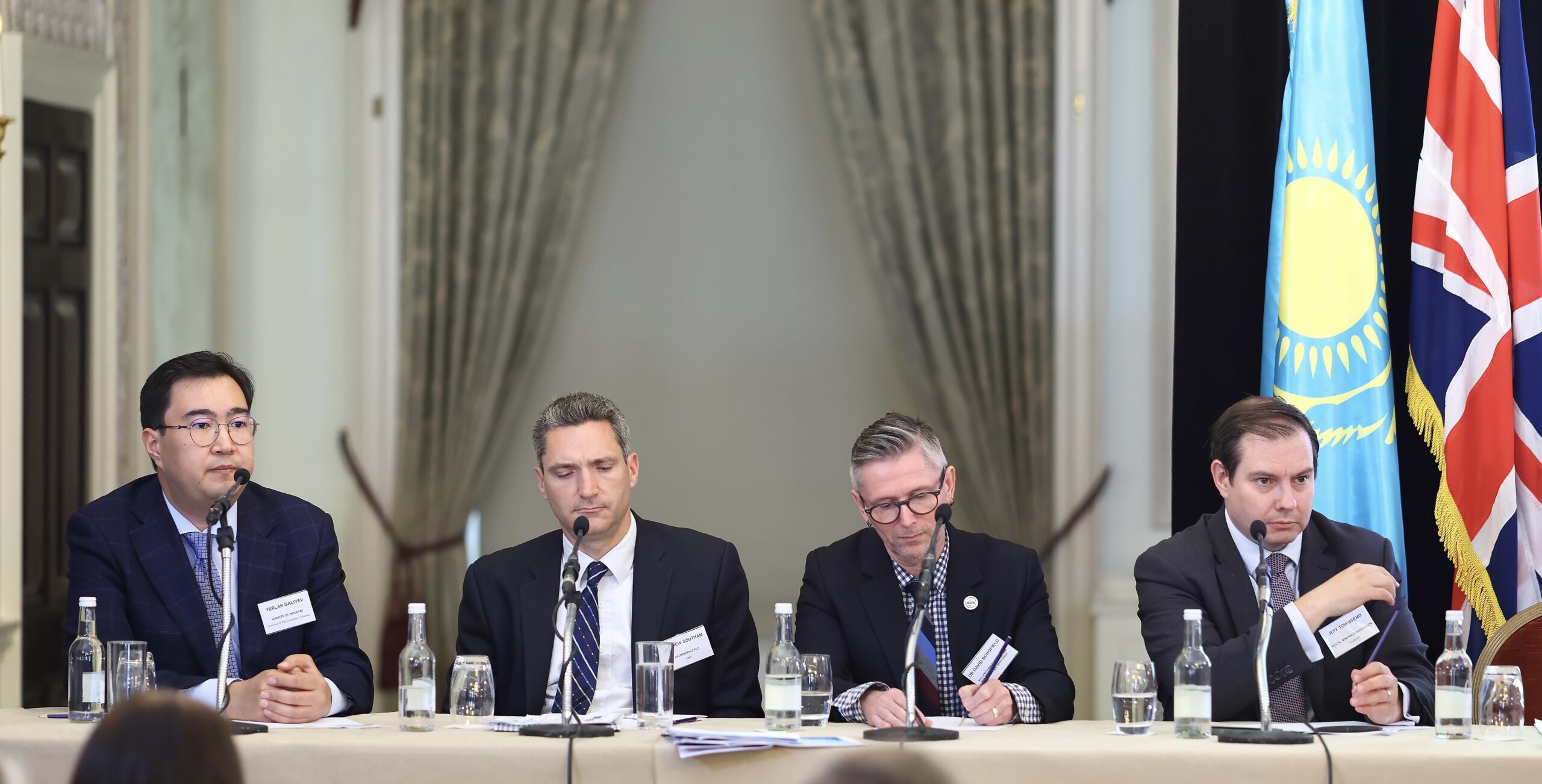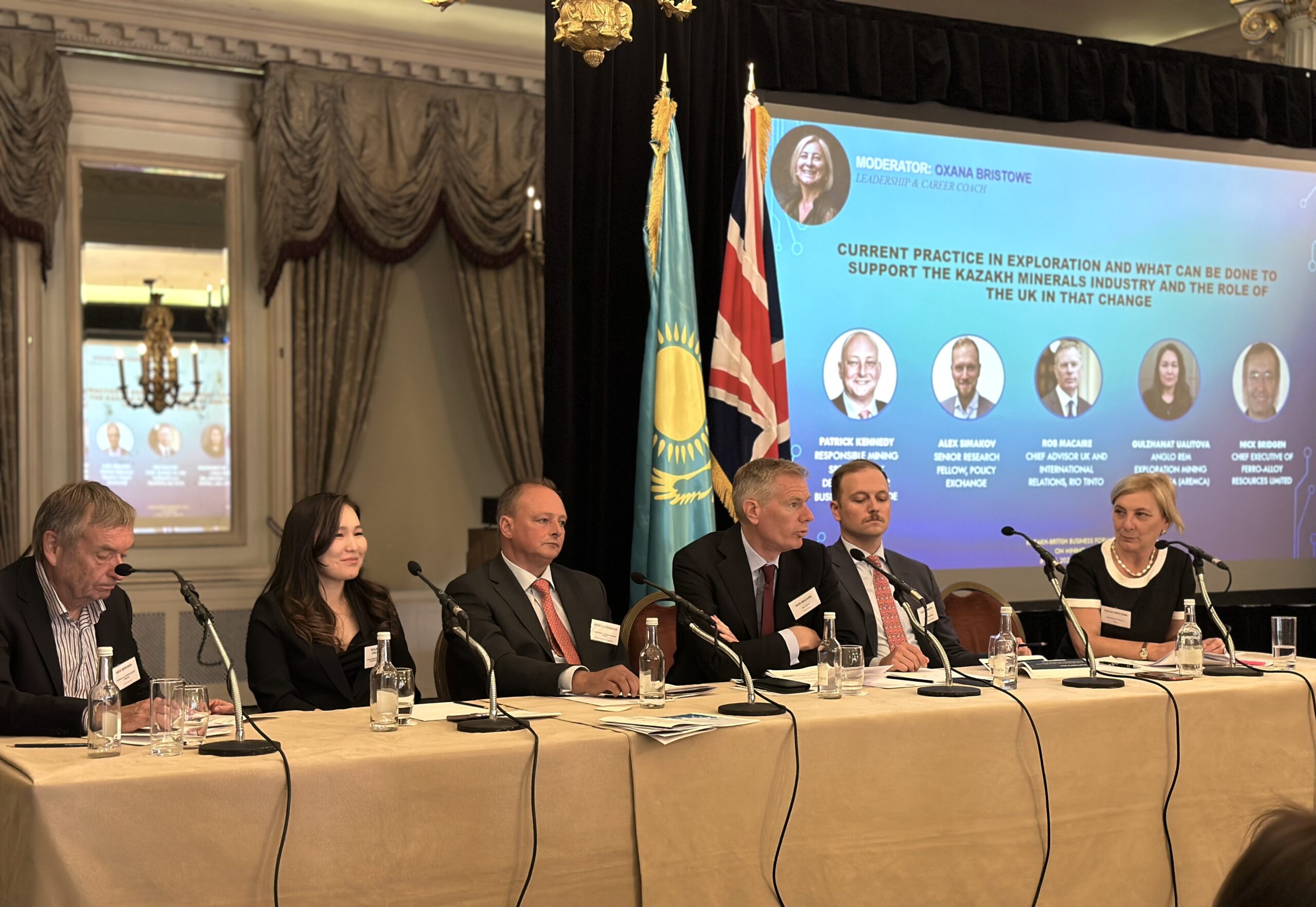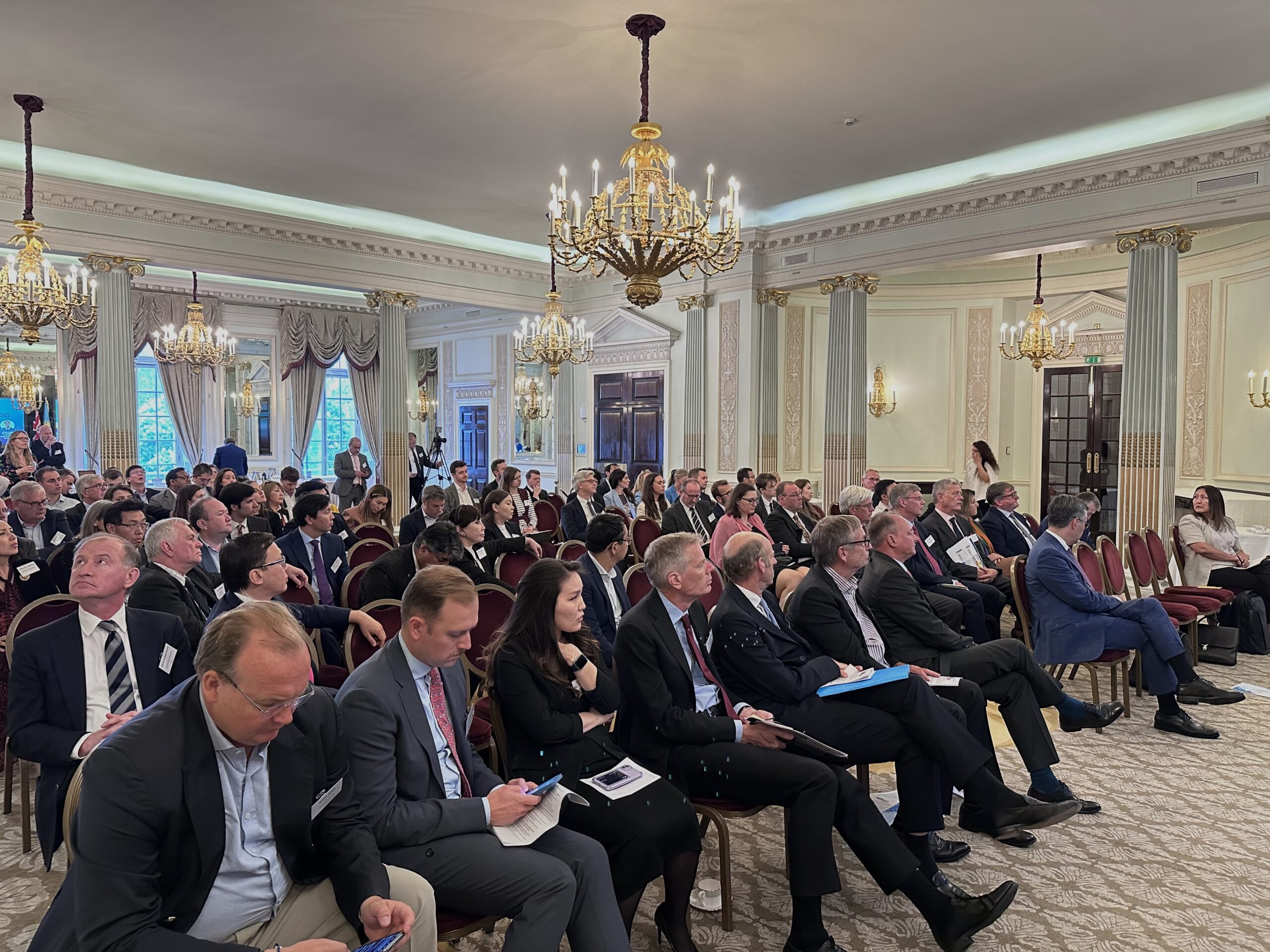LONDON – The Kazakh Embassy in the United Kingdom held the Kazakhstan-U.K. Mining Business Forum in London on July 6. It featured two panel discussions on critical mineral development opportunities and investment options for the British mining community.

British Minister of State at the Department for Business and Trade Nusrat Ghani. Photo credit: Kazakh Embassy in London.
British Minister of State at the Department for Business and Trade, Nusrat Ghani, noted the unprecedented attractiveness of Kazakhstan’s mineral and raw materials base and emphasized the significance of the U.K.’s participation in its development.
“What remains constant in a changing world is the importance of our partnership with Kazakhstan, which I am determined to enhance. We all know that international investors value a stable and predictable business environment, and I applaud your government’s work on regulatory reform. It has turned Kazakhstan into one of the world’s best jurisdictions to explore and mine today,” the minister said.
In his welcoming remarks, Magzhan Ilyassov, the Ambassador of Kazakhstan to the United Kingdom, spoke about Kazakhstan’s state programs designed to support foreign investors and attractive conditions for those who will contribute to manufacturing high-quality products and developing metallurgy.

Kazakh Ambassador to the United Kingdom Magzhan Ilyassov. Photo credit: Kazakh Embassy in London.
He listed the major benefits of the country’s investment climate, including Kazakhstan’s Subsoil and Subsoil Use Code based on the Australian model in the mining sector, fiscal and non-fiscal incentives within comprehensive support for investment projects, as well as a newly introduced investment agreement, which ensures the legislation’s stability for up to 25 years and can be directly concluded with the government.
“A strategic goal of any country is maximum processing of raw materials within its own territory. That is the case with Kazakhstan. That is why we made a transition from the production of base metals, semi-finished products to the production of new alloys and finished products,” he said.
The ambassador also mentioned the first visit of British Foreign Secretary James Cleverly to the Kazakh capital in March, when Kazakhstan and the U.K. signed a memorandum on a strategic partnership in the field of critical minerals.

Yerlan Galiyev, Andrew Southam, David Schofield, Jeff Townsend (from left to right). Photo credit: Kazakh Embassy in London.
In terms of geology’s digitalization and informatization, Kazakhstan is in the process of creating a unified platform with a one-window principle for investors and subsoil users (minerals.gov.kz).
“Our goal is to automate all the business processes in the mining sector and provide investors with an easier way to obtain the geological data, which is a key factor for them when making a decision. Last year, we uploaded more than 30,000 geological reports. This year, we are going to upload 24,000 more. The work will be finalized by the end of this year,” said Yerlan Galiyev, Chair of the Geology Committee at the Kazakh Ministry of Industry.
Today, more than 550 British companies are operating in Kazakhstan, mainly in the fields of technology, trade, science, finance, manufacturing, mining, and logistics.
Speaking about copper mining in Kazakhstan, KAZ Minerals CEO Andrew Southam said “in total, the company has invested $6 billion since 2014 and over that period increased its production from 84,000 tons of copper per year to nearly 380,000 tons of copper by 2022.” KAZ Minerals is the largest UK-based copper mining company in Kazakhstan.
“The Kazakh government is committed to attracting foreign direct investment. I suppose this is also what made Kazakhstan successful. We continue to invest in other projects and are confident in the country’s future,” said Southam.
According to Jeff Townsend, founder of the Critical Minerals Association, and David Schofield, Director of National Geoscience at the British Geological Survey, Kazakhstan’s strong potential in critical minerals exploration and development aligns with London’s first-ever critical minerals strategy adopted last July. It aims to ensure collaboration with international partners and enhance international markets.
“If you look at the Mining Journal World Risk report, Kazakhstan ranks 68th in terms of mining jurisdiction, exactly like the U.K. The U.K. is now developing its green economy, and we have to think about how to diversify the supply chain,” said Townsend.
Out of the required 18 critical minerals identified by the strategy, Kazakhstan has four in production (bismuth, gallium, rare earth elements, silicon) and 10 explored (vanadium, tungsten, tin, tantalum, niobium, magnesium, lithium, indium, graphite, cobalt).
“We have a number of companies that have a capacity to process and produce rare earth metals. For example, one of them is the well-known Ulba Metallurgical Plant [the Kazakh-Chinese fuel assembly plant located in the Kazakh city of Ust-Kamenogorsk], which produces beryllium, tantalum, niobium, and uranium,” said Al-Farabi Ydyryshev, Director-General of Kazakhstan’s National Center for Technology.

Nick Bridgen, Gulzhanat Ualitova, Patrick Kennedy, Rob Macaire, Alex Simakov, and Oxana Bristowe, the moderator of the event.
Nick Bridgen, CEO of Ferro-Alloy Resources, Rob Macaire, Chief Advisor on the U.K. and international relations at Rio Tinto, and Gulzhanat Ualitova, director of the Anglo Rem Exploration Mining Central Asia (Aremca) company, a women-led team of geologists, highlighted the relevance of introducing innovative exploration technologies and responsible environmental management.
Patrick Kennedy from the British Ministry of Business Development and Trade, and Alex Simakov, a senior researcher at Policy Exchange, the U.K.’s leading think tank, focused on logistics and commercial opportunities in Kazakhstan.
“Kazakhstan’s transport links have been oriented towards and through Russia. Over the past decade, we have seen a rapid industrial integration with China, which also describes Kazakhstan as the buckle of the Belt and Road Initiative. A major part of the conversation we are having today is about maximizing Kazakhstan’s economic and political sovereignty, as well as export pathways to the world markets,” said Simakov.

The Royal Automobile Club. Photo credit: The Astana Times.
Kazakhstan has the sixth largest reserves of natural resources in the world and the tenth largest total mineral production globally, excluding oil and gas. The country has 12 percent of the world’s uranium resources. The forum proposed to foreign companies to explore more than 60 deposits of precious and non-ferrous metals.
